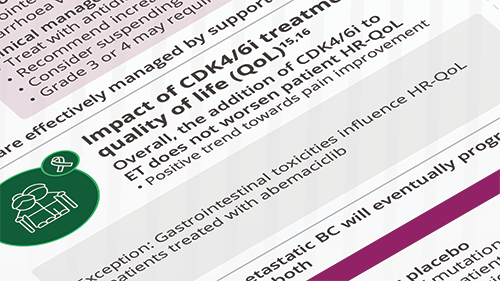Phase I study of ribociclib (CDK4/6 inhibitor) with spartalizumab (PD-1 inhibitor) with and without fulvestrant in metastatic hormone receptor-positive breast cancer or advanced ovarian cancer
This Phase I trial evaluated the combination of ribociclib (a CDK4/6 inhibitor) and spartalizumab (a PD-1 inhibitor) with and without fulvestrant in patients with metastatic hormone receptor-positive breast cancer or advanced ovarian cancer. The study found that while the recommended phase 2 dose of ribociclib was established at 600 mg, the treatment showed limited efficacy and increased hepatotoxicity, leading to the conclusion that further development is not warranted.
